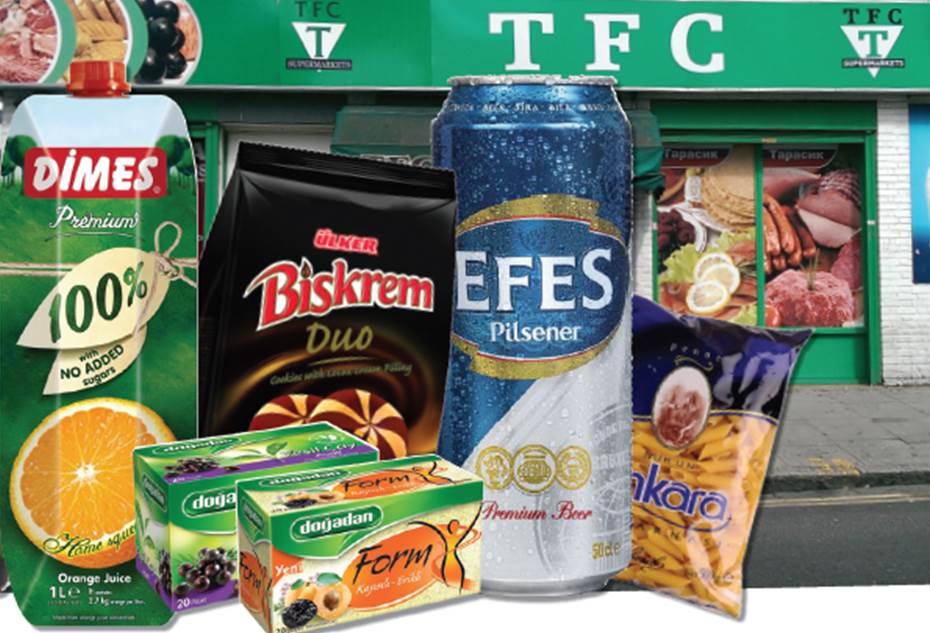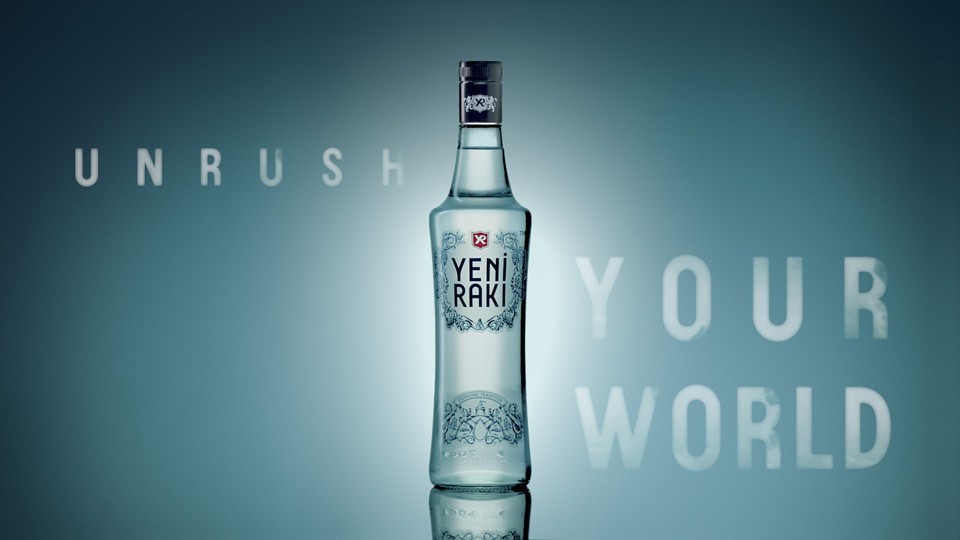In sophisticated markets like the UK, you need spectacular branding. This process of creating a unique identity is not just about the company or product name and a logo, but also its values, personality, people, culture and service, which shape the way customers and the wider world perceive it.
T-VINE takes a look at how Turkish brands are performing in Britain: the success stories, the emerging brands and those which have the potential to strike out beyond their ethnic market.
First up, what do we mean by ‘Turkish brands’? Naturally, any originating from Turkey or North Cyprus, and those founded in Britain by those of Turkish heritage. It means BBC Dragon Touker Suleyman’s Hawes and Curtis, Cafer Mahiroğlu’s Select Fashion, and United Biscuits (behind McVities and Jacob’s), now owned by Turkey’s Yıldız Holding, are out, as they were created by non-Turks. But there’s no shortage of Turkish businesses to review.
The experts helping T-VINE to assess the brands and issues were marketing director Anne Bacon (Strategic Consulting Group), commercial counsellor Aytuğ Göksu (Turkish Embassy), PR director Berna Sermet (Caro Communications), Enver Kannur (MD of Accounting Direct Plus), PR director Ceyda Sara Pekenc (Redmint Communications), and creative consultant Fabrice Ward.
So can any old business become a brand? The experts conclude a one-man firm, however successful, rarely is. One of the key ingredients is to create a business concept whose formula can be replicated regionally, nationally and eventually globally.
Anne Bacon says it is important to recognise which “attributes will help a business transition into a brand”. These elements, which must command the respect of its customers, will shape its unique identity.
Do the ‘Made in Turkey/North Cyprus’ or ‘Turkish’ labels help or hinder when marketing to British media and consumers? Aytuğ Göksu points out that the soft power of Turkish TV soaps in the Middle East means anything from Turkey sells there. That’s not so in Britain.
So what does it take to turn a successful, but largely unknown business into a brand and where should a business owner start? It takes at least three years to develop a successful brand. Fabrice Ward, who’s worked on award-winning campaigns, says big companies spend upwards of £25,000 per month to achieve this, allowing “beautiful work to be made and seen by more people more often.” Yet those on smaller budgets can find less costly, more ingenious solutions.
Fabrice says the key is to get the base line right, and ask: “Who are we? Who are we talking to? What do they think about us? What do we want them to think? What can we say to make them think it?”
The heavyweights
When we asked people to name ‘Turkish brands’, they immediately thought of those synonymous with Turkish culture: kebabs, tourism and coffee. Yet the most successful Turkish brand in Britain, Beko, makes domestic appliances.
“One in five domestic appliances in the UK is a Beko”
Beko entered the UK in 1990. Its competitively priced fridges and washing machines, promoted by pitch-side advertising at Premier League football clubs, saw it leapfrog rival Hotpoint in 2012 to become the nation’s best-selling brand. To date, the white goods maker has sold over 20 million appliances in Britain. The Sun estimated one in every five domestic machines sold is a Beko.
But the company isn’t resting on its laurels. In May, it announced the opening of a new R&D centre in Cambridge. Aided by university research, Beko is developing advanced sensors for use in its next generation of smart appliances.
Another power brand is Turkish Airlines, which operates more flights between Turkey and Britain than any other. Voted Europe’s best airline for the sixth time, the company is Turkey’s most valuable super-brand, worth $2.45bn, and used by Harvard Business School as a case study.
Formed back in 1933 and branded Turkish Airlines in 1955, the carrier flies to more territories than any other, serving 290 destinations in 116 countries. Its strategic decision to use Istanbul as a regional transit hub pushed passenger numbers up from one million in 2004 to 14 million in 2015.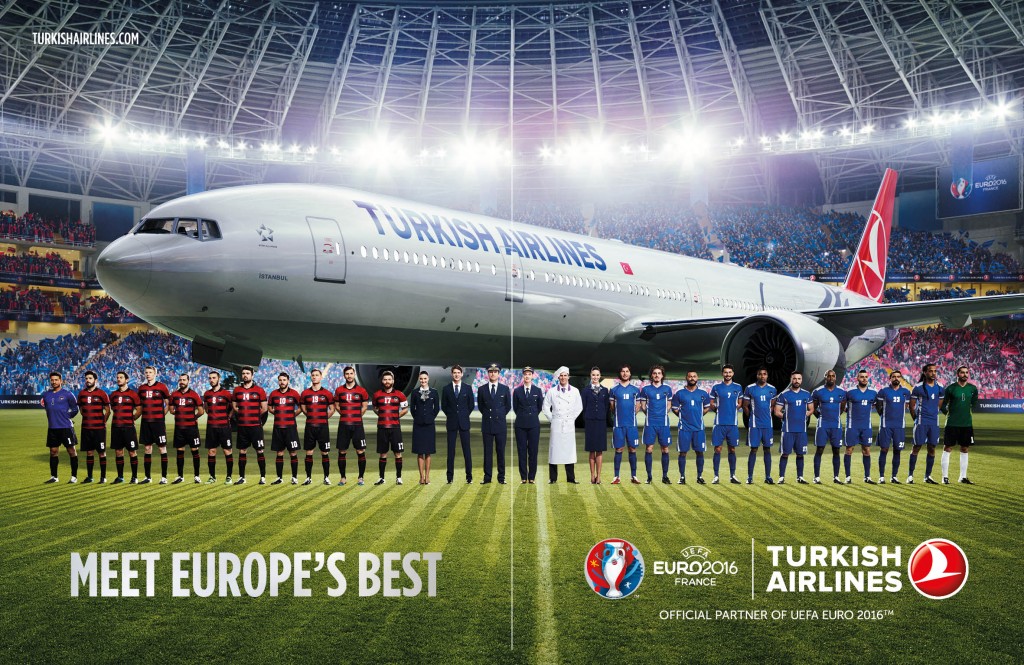
Central to this rapid growth was Turkish Airlines’ approach to branding. Internal culture was moulded, with each staff member required to play their part in the airline’s global aspirations. To this, the company added its own unique story, moving beyond being a proud national carrier to projecting messages that resonated more widely.
Market research showed consumers identify more with cities than countries, so the airline drew on its heritage of being based in iconic Istanbul and its links to urban centres worldwide. Memorable occasions were used to remind passengers what makes “Turkish” special. Advertising campaigns featured Istanbul’s amazing landmarks and culture. Passengers were served award-winning food, and traditional Turkish coffee and tea at 35,000 feet, and those arriving in Istanbul stepped into the airline’s stunning, modern and spacious passenger lounge at Atatürk Airport, all helping to carve out its richly-deserved reputation as one of the world’s finest airlines.
International themes were adopted to cement its position as a global brand using the ‘Widen Your World’ strapline. Humorous global ad campaigns included “Selfie Shootout” and “Epic Food”, featuring Kobe Bryant, Didier Drogba and Lionel Messi. As sponsors of this year’s movie blockbuster Superman v Batman, the airline twinned its promotions with these superheroes. And in June, as a UEFA Euro 2016 sponsor, Turkish Airlines’ name was broadcast to two billion viewers.
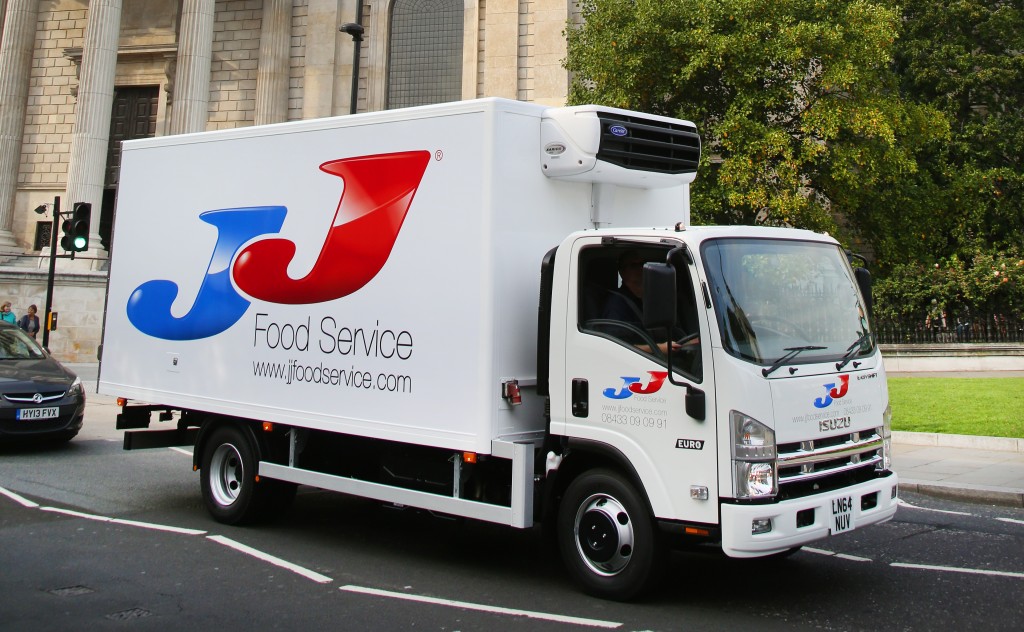 The most successful home-grown Turkish brand is JJ Food Service. Established by Turkish Cypriot entrepreneur Mustafa Kiamil in 1988, the company posted annual sales of £181.64m in 2015, recording a 55% rise in pre-tax profits, propelling it onto the Sunday Times’ list of most profitable privately-owned UK businesses.
The most successful home-grown Turkish brand is JJ Food Service. Established by Turkish Cypriot entrepreneur Mustafa Kiamil in 1988, the company posted annual sales of £181.64m in 2015, recording a 55% rise in pre-tax profits, propelling it onto the Sunday Times’ list of most profitable privately-owned UK businesses.
JJ employs 900 people and has eight depots across Britain, with three more opening this autumn. Products include fresh, chilled, ambient and frozen goods, branded as well as own-label lines, alongside packaging and cleaning materials. Schools, universities, local authorities, restaurants, pubs and hotels are among its diverse customer base.
In 2014, JJ won The Grocer Gold Medal Wholesaler of the Year Award, beating major foodservice companies Booker and Bidvest 3663. It was crowned 2016 Gold Technology Supplier of the Year, reflecting its significant investment in digital services, including customer and driver apps.
Food glorious food
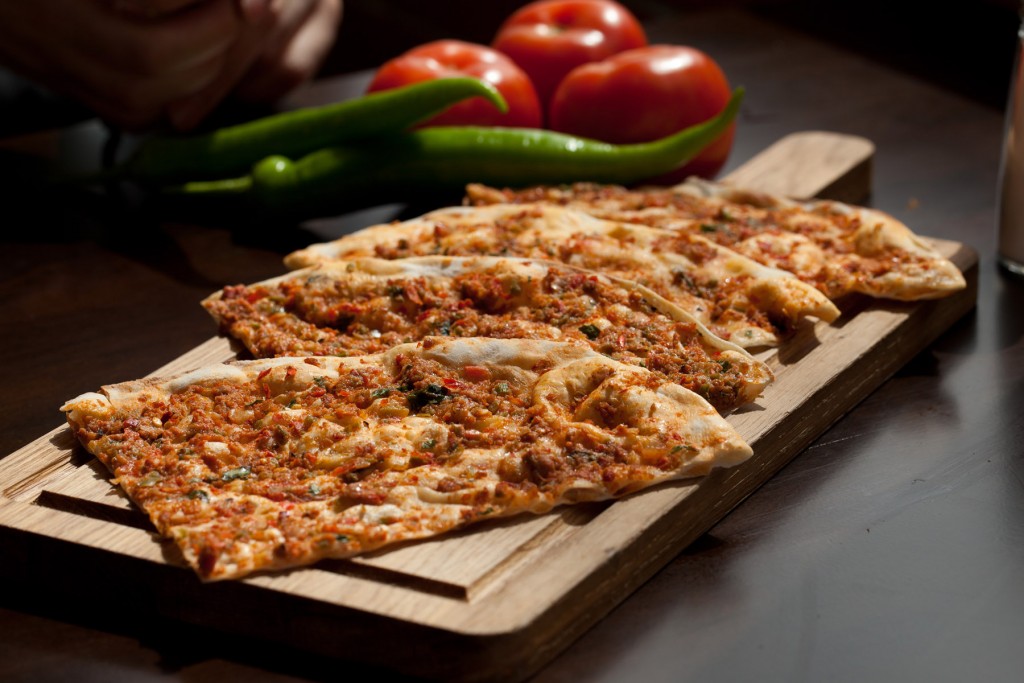
Turks love food, so it comes as no surprise that this is a sector they are thriving in. Thousands from our community have carved out a successful living in the catering industry, running cafés, restaurants, and takeaways, helping to fuel the spectacular growth of the £2.2bn kebab industry.
The annual British Kebab Awards, created by İbrahim Doğuş, have helped raise the sector’s profile and one of the most prolific winners is The Best Turkish Kebab in Stoke Newington. Every day for the past 34 years, this legendary takeout has mounted two monster-sized döner spits of top-cut minced lamb, and by closing time it is all sold.
The Best Turkish Kebab, Hüseyin Özer’s Sofra, and Önder Şahin’s Tas chains are the few with enough mainstream awareness to be considered ‘brands’. Sadly a lack of investment in marketing means most Brits would struggle to name any but their local eatery.
The same is true for Turkish grocers. Industry analysts Research and Markets estimate the UK ethnic food sector is worth £4bn, double its size of five years ago. More growth is expected, presenting a tremendous opportunity for ethnic supermarkets and food manufacturers.
The UK grocery sector is dominated by the Big Four: Tesco, J Sainsbury, Asda and Morrisons. In London, one chain holding its own against these major retailers is TFC, with 14 branches and two more set to open this year – no mean feat considering Morrisons has 31 stores in the capital.
TFC was born out of a joint venture between a Turkish Cypriot, Topal Ali, and Kurdish brothers Kemal and Hüseyin Uçar. Their first Turkish Food Centre opened on Ridley Road Market, Dalston, in 1980, and expanded rapidly. Today the chain’s presence stretches southwards to Croydon, up north to Enfield, and out to Welling in Kent.
This independent retailer aims to give its customers enough choice to do their entire weekly shop under one roof. Each branch has an in-house bakery, delicatessen and meat counter, and stocks globally-sourced fruit, vegetables, and household groceries.
TFC also serves as the UK distributor for Turkey’s leading brands: food giants Pınar and Tamek, pasta brand Piyale, Efes Beer, Doluca wine, herbal tea maker Doğadan, Öncü Salça (sauces and paste used by the kebab sector), and Turkey’s oldest coffee brand Kurukahveci Mehmet Efendi.
Last year, TFC opened its own cash and carry for their many trade customers. Wholesale now accounts for 50% of their multi-million pound business, which employs 700 staff. The company recently became a member of Landmark Wholesale, meaning TFC can buy branded goods more cheaply, while also sell into multiples such as Tesco, Asda, Booker, and JD Wetherspoon.
Beautiful branding
You don’t need to be huge to create beautiful branding. One of the best examples of this is Özerlat. Established in 1917 in the heart of old Lefkoşa, this family-run business makes one of Cyprus’ oldest Turkish coffees.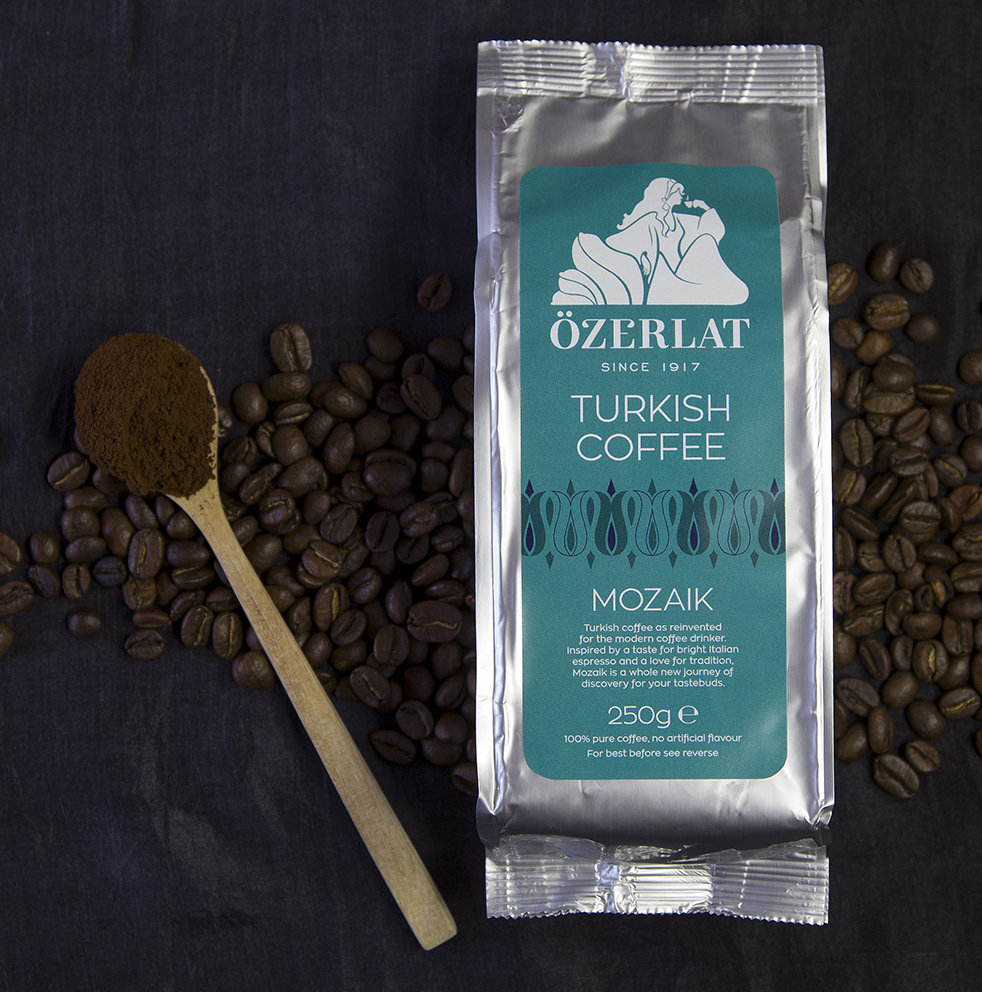
In 2013, eldest daughter İley eyed the UK market. She got Özerlat’s traditional blends stocked in famed Cypriot supermarket Yasar Halim and leading Turkish restaurants, such as Grand Bazaar, Gallipoli, Pasha and Efes Restaurants.
With the coffee sector booming, Özerlat decided to craft two exclusive new blends – Heritage and Mozaik – for the UK’s discerning market. “We are targeting adventurous coffee drinkers who like to try different types of coffees and brewing methods,” said İley.
Her aim is to make Özerlat a recognised brand for Turkish coffee and an ambassador for the culture around it. They worked with a British agency to create a highly original logo of a female coffee drinker nestling among coffee beans.
Armed with their stylish new identity, the Özerlat team hit the capital’s festivals, food markets, and supper clubs, taking a stall at last year’s Taste of London, to drive up brand awareness. Their efforts paid off: Özerlat coffee can now be found at prestigious restaurants like The Palomar and Selin Kiazim’s Oklava, and in Partridges’ award-winning fine food market in Chelsea.
“Yeni Rakı aims to change UK drinking culture with its ‘spirit of slow’”
Yeni Rakı is another Turkish business trying to change British drinking culture. In 2011, drinks giant Diageo bought parent company Mey İçki, presenting an incredible opportunity for one of Turkey’s iconic brands to go global.
Turkey’s national drink rakı is a strong, unsweetened aniseed spirit and an ever-present at dinner, especially with seafood and meze. Yet few foreigners know about it, so KesselsKramer London was commissioned to develop an international marketing campaign, producing some of the most eye-catching branding ever seen for a Turkish business. The visuals, created in collaboration with world-famous photographer Elaine Constantine, were used in advertising, digital content, and printed materials, which included a drinks manifesto and an illustrated guide to rakı traditions.
The team wanted to herald Yeni Rakı’s global arrival with a big statement to encourage consumers to discover a new way of thinking and drinking: enter “Unrush Your World”, an invitation for consumers to share, savour and enjoy the ‘spirit of slow’.
The concept was inspired by Turkey’s leisurely dining culture, juxtaposed against the West’s obsession with fast living and fast food. Cue the rakı sofrası (rakı table), where friends meet to drink, dine, and engage in lively conversation.
Cosmopolitan, trendsetting London was selected for the brand’s launch in 2014. Star chef Ollie Dabbous hosted press and Mediterranean chefs at his Dabbous restaurant, where he paired his signature dishes with Yeni Rakı.
More rakı table and curated events followed, where influencers were invited to experience the magic first hand, including at a pop-up meyhane at Taste of London. The events, social media and wider marketing to the trade helped build a buzz around the brand in London’s leading food and drink scenes. The campaign then travelled to Germany, Bulgaria, Georgia and Austria, with the emphasis again on memorable moments, helping Europeans to familiarise with the taste and culture of drinking rakı.
Brands to watch
Anyone visiting Turkey and the TRNC will know Efes Beer. Its parent company Anadolu Efes exports to 70 countries, and is Europe’s 6th largest brewery and the 12th largest worldwide. Efes has been brewed since 1969 and comes in a variety of refreshing styles, with Efes Pilsen – a light, crisp lager – an international best-seller.
Long-term UK distributor TFC has overseen huge sales growth for the brand. Its general manager Eser Altınay compares Efes to Cobra: “When you go to an Indian restaurant, you have to have Cobra beer; when you go to a Turkish restaurant, you have to have Efes.”
“Efes is to Turkish food what Cobra beer is to Indian”
Today, Brits can also enjoy an Efes at over a thousand JD Wetherspoon pubs, or pick up a few bottles from their local Asda, online at Amazon, or from an off licence.
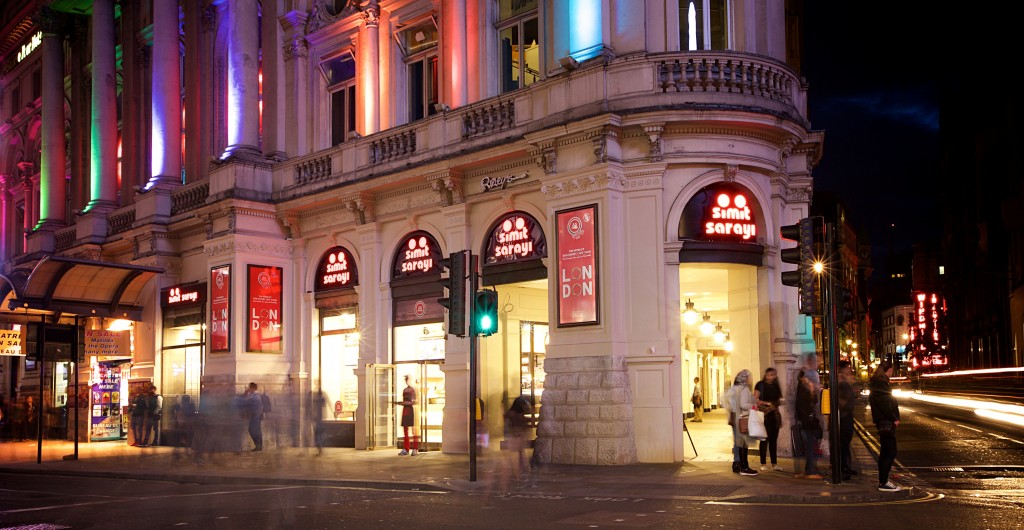
A newer Turkish arrival in Britain is Simit Sarayı. A simit is Turkey’s equivalent of the bagel: encrusted with sesame seeds, this slim circular bun with a big hole dates back to the Ottoman Empire, and can be eaten with fillings or on its own as a snack.
Since opening its first store in Mecidiyeköy in 2002, Simit Sarayı has enjoyed a meteoric rise, with over 450 stores worldwide, including New York, Amsterdam, Stockholm and Dubai. Plans are afoot for 550 more outlets by the end of 2018, including Paris and in European airports.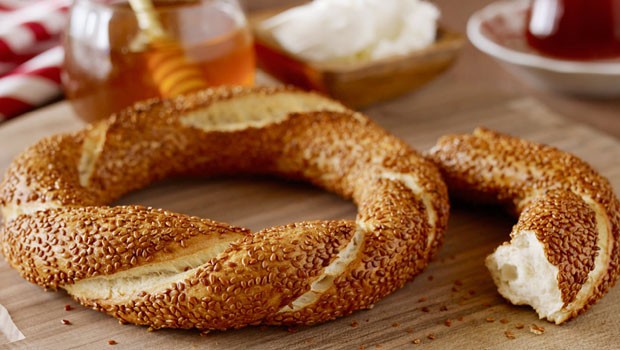
From the off Simit Sarayı ignored playing safe by opening in ‘Turkish’ north London, plumping instead for locations smack bang in the heart of London, where footfall is high. Two stores are in Bond Street Station, on Oxford Street, with another on Piccadilly Circus. New branches in Charing Cross, Greenwich, Bloomsbury, and Harringay will follow.
Their choice of prime locations, which draw large numbers of tourists and locals, means there has been little need for promotion. UK marketing manager Ezgi Ceren says the simit was an instant hit. Part of a tasty menu of pastries, sandwiches, salads and beverages in modern packaging steeped in the corporate colours of red, brown and white, and served in contemporary interiors, Simit Sarayı oozes the confidence of an internationally-successful brand.
A lesser-known success story is the UK’s Funky Giraffe Bibs, which designs and manufactures bandana bibs and baby accessories. The company was created in 2009 by mummy-on-a-mission Yasmin Drury. After the birth of her son Eren, she couldn’t find a range of quality, affordable bibs and decided to make her own.
Using her background in fashion design and her brother’s Bursa-based clothing factory, Yasmin created bandana bibs with cool designs. Rejected by the major retailers as “too small”, Yasmin turned to her City trader husband Solomon to help develop the business online: it has blossomed ever since. Over 300 bib designs, along with many other baby products, including socks, hats and scratch mittens, all at affordable prices, are sold in Britain, Ireland, Australia, France, Germany, Italy Spain, and as Groovi Gee in the USA, and soon in Norway.
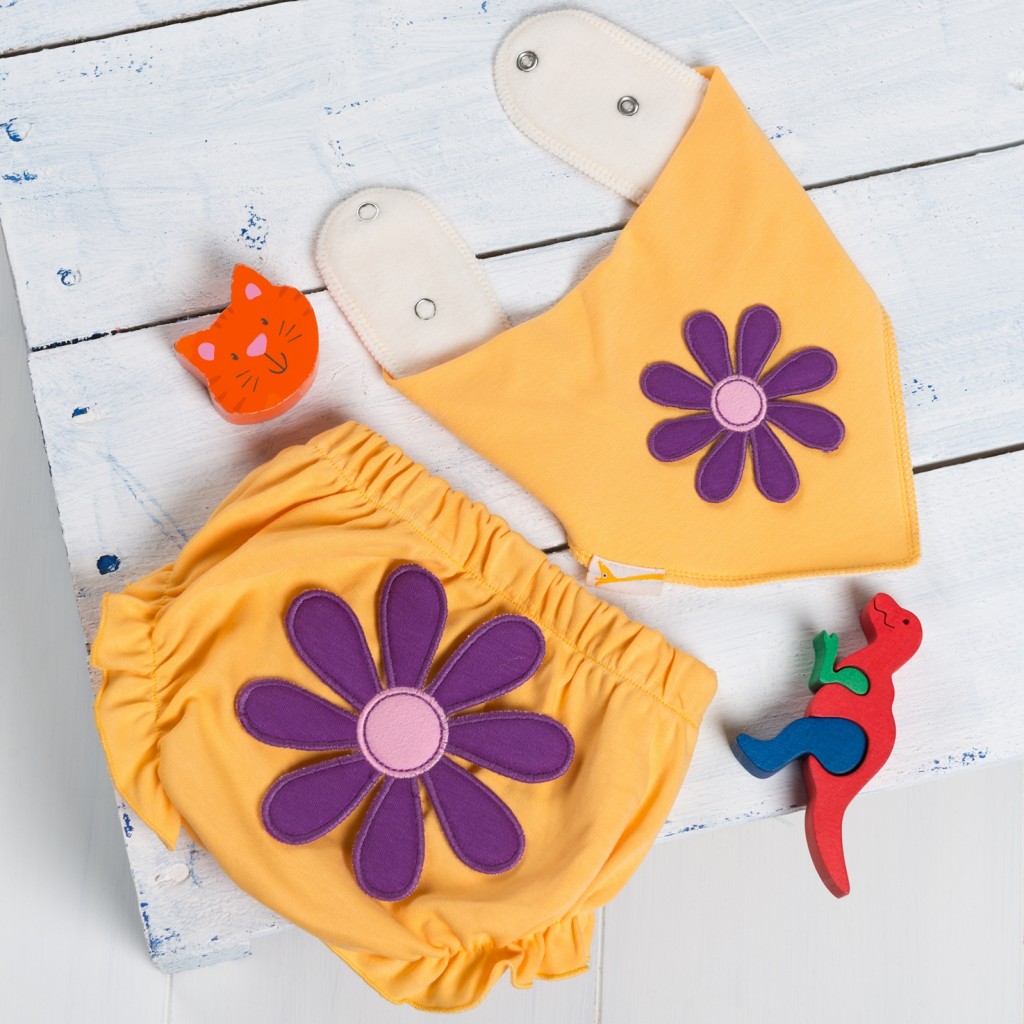
Solomon says the key to their success is the ability to produce small test batches in Turkey: “This allows us to perfect our items without risking too much.”
Personal recommendations, Google ads, and social media have been vital for sales, turning Funky Giraffe into a multi-million pound venture without any mainstream media endorsement or major retailers. The company prides itself on “100% satisfaction”. The reviews from their legion of devoted customers show that on both products and service, they always deliver.
Sector prominence
The past six years have seen an explosion in Turkish barbers. In every town you can find a men’s grooming emporium specialising in the art of Ottoman hair care: flame-skewers to remove ear hair, cut-throat razor shaves, topped with head and shoulder messages. Only one is known nationally: Ted’s Grooming Room. Operating ten branches across the West End and City, this is the biggest chain by far. Created by Mus Ismail, its prominence has been helped by its strategic link to top British fashion retail brand Ted Baker.
Fashion is another sector where Turks have excelled. Named British Designer of the Year in 1988, Istanbul-born Rifat Özbek paved the way. A decade later, his success was emulated by Cypriot Husseyin Chalayan, whose work has become the stuff of legend. Other designers have followed suit: Erdem, Bora Aksu and Zeynep Kartal, all adored by their celebrity clients.
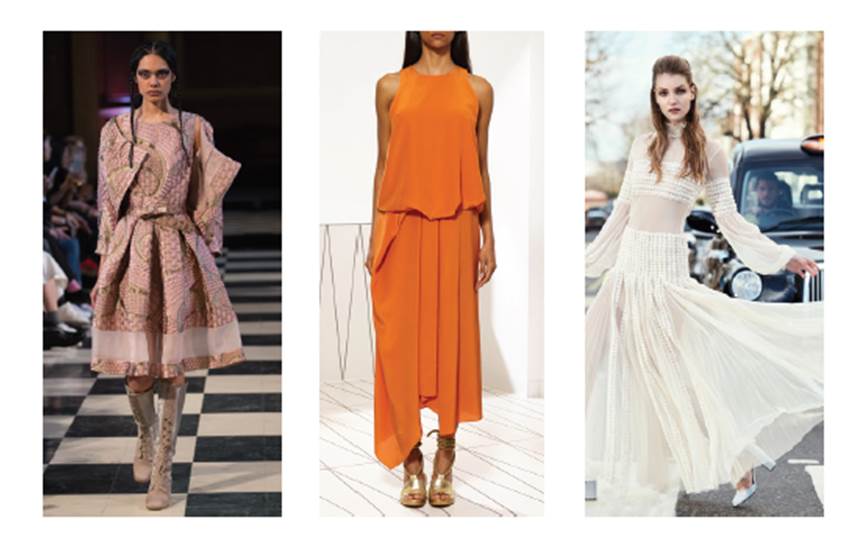
The sun, sea and affordability of Turkey and North Cyprus have attracted millions of British tourists, and spawned dozens of travel businesses owned by British Turks. Several are recognised for their quality by the British travel industry and consumers alike. Award-winners include Cyprus Paradise, Direct Traveller, and The Discovery Collection.
Travel PR Ceyda Sara Pekenc says that in the ‘3rd age of the brand’ it’s all about making every single touch-point a memorable experience for tourists. Technology is an essential part of engaging the market, but so too is simplicity, “so your message can penetrate the sheer volume of other “noise” consumers are bombarded with”, explains Ceyda.
A big fish in the ethnic pond
Plenty of Turkish firms seem content to reign supreme in their local ethnic market. This makes sense for the likes of Turkish Bank and İşbank, who exist to serve UK-based Turks. Here since 1974, they are among the oldest Turkish brands in Britain. For those businesses in sectors with a more diverse customer-base, such as chains Kervan Sofrasi and Erbiller Jewellers, a lack of investment in their brand presence and reach means they receive less recognition than their commercial success merits.
Take furniture: a proliferation of Turkish brands – Bellona, Nill’s, Oda, İstikbal, and İpek Mobilya – can be found in the Turkish North London belt. Design PR Berna Sermet, who has worked with Habitat and BoConcept, is not surprised these businesses stick to their community comfort zones, as she doesn’t feel they would appeal to the wider British public.
According to Berna, “The designs are too fussy, not like the Scandinavian styles that have come to dominate [the British market]. The price points are not cheap either.”
One furniture maker bucking the trend is Doğtas, opening its flagship UK store in Brent Cross – one of the capital’s main retail hubs. With Dfs and Sofology as neighbours, the company is now in direct competition with the UK’s leading names. Turkey’s biggest home furnishings brand aims to compete not only on price and product quality, but also with its Doğtaş Exclusive UK promise to shoppers: free interior design, free delivery, free installation, and flexible payment options.
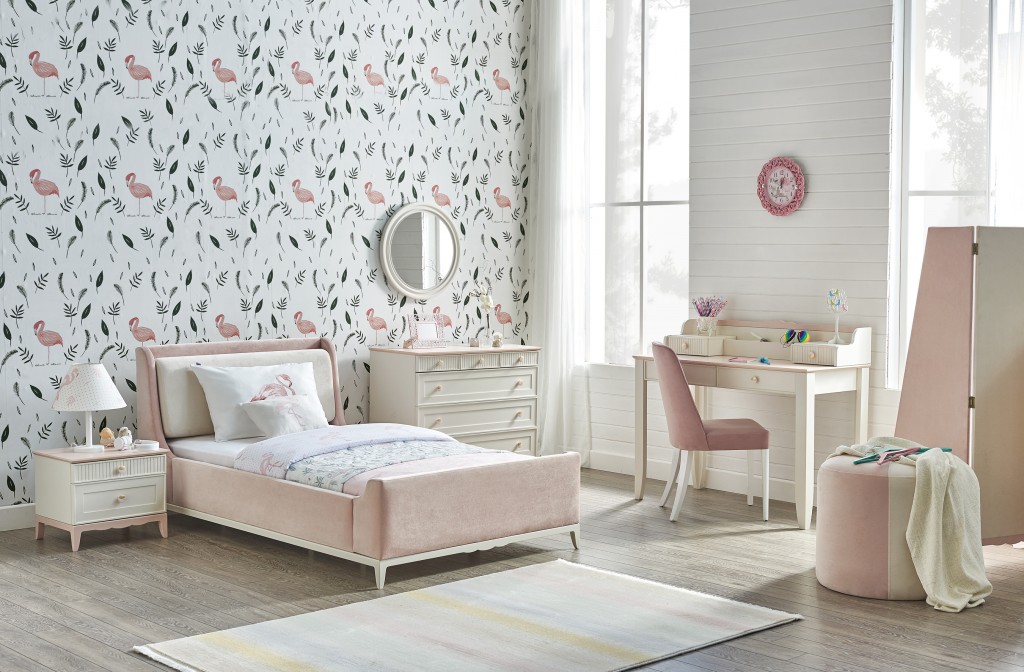
Having initially targeted ethnic London, Doğtaş then spent big on an ad campaign on the backs of London buses. Surprisingly they ignored the more fundamental step of courting interiors and home furniture magazines, which are better for brand awareness and return on investment.
The most sorely-felt absence is from those brands with the resources to compete on the national stage, chief among them Ülker – Turkey’s leading confectioner and biscuit maker. We’ve been buying their products from ethnic supermarkets and corner shops for decades. Yet when its parent company Yıldız Holding bought United Biscuits in 2014, the national British press were not aware, so slight is Ülker’s marketing in the UK.
“They want to produce for Burberry, never be a Burberry”
The world’s biggest brands are those that not only develop great products, but also move beyond a boringly functional relationship with their customers to create more memorable experiences. That requires a significant spend on marketing.
Top accountant Enver Kannur, who also sits on the board of the Turkish British Chamber of Commerce and Industry (TBCCI), says many Turkish businesses fail to allocate even 5% of their annual budgets to marketing.
Business owners from Turkey or North Cyprus often commit two cardinal sins. The first is not to do their homework before entering the UK market. This misplaced arrogance comes from creating a successful business abroad, which they assume will just take off in Britain too. The other is to entrust the brand into the hands of those with no real experience – UK distributors and partners who lack market knowledge and the credentials to launch and grow the brand.
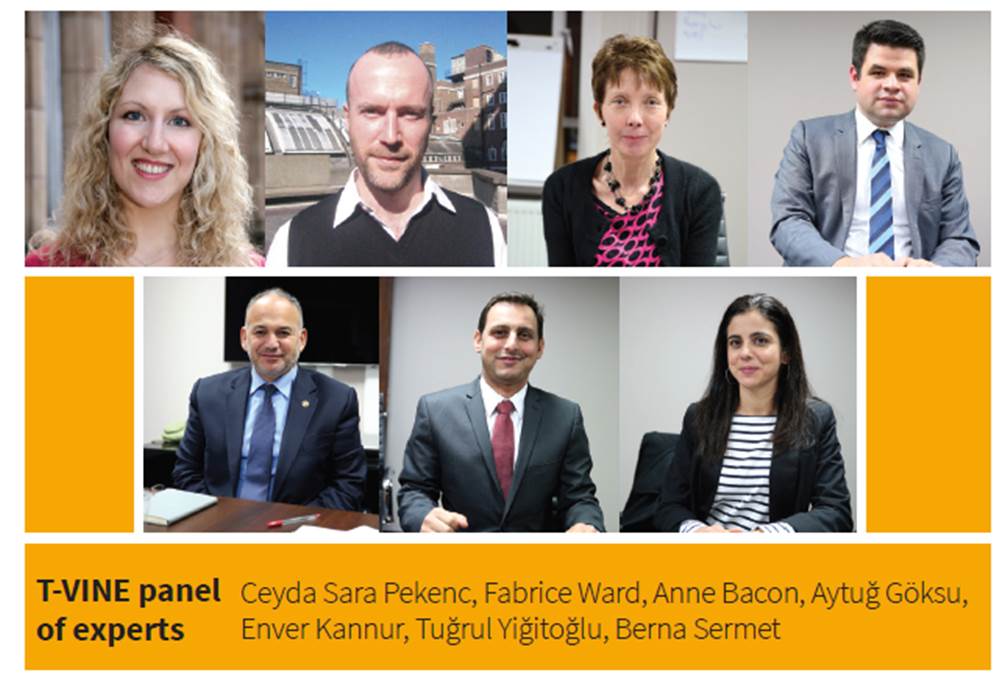 Businesses founded in the UK tend to be family-run, and Enver believes their most common problem is their silo mentality and aversion to risk-taking. Having succeeded without strategic planning, they see no need to change. Older family members especially view marketing with suspicion, as the dividends cannot be reaped immediately, and so they deem it a waste of money.
Businesses founded in the UK tend to be family-run, and Enver believes their most common problem is their silo mentality and aversion to risk-taking. Having succeeded without strategic planning, they see no need to change. Older family members especially view marketing with suspicion, as the dividends cannot be reaped immediately, and so they deem it a waste of money.
Creative marketing consultant Bee Keskin, who has worked with numerous multi-nationals and Turkish-owned businesses, says Turkish entrepreneurs lack vision and fail to appreciate the power of branding, preferring short-term gains over investing in long-term growth. She describes this as, “wanting to produce for Burberry, but never be a Burberry.”
Yet as we see above, those who do understand the importance of creating their own unique identity, and maintaining a strong and visible presence in their marketplace, will flourish.
It’s great to see so many Turkish brands doing well in Britain. Ultimately, those who can cut it in this prestigious and challenging market have the potential to become world leaders.
Main image: design by Seda Birlesen Entesary of Entesary Design



